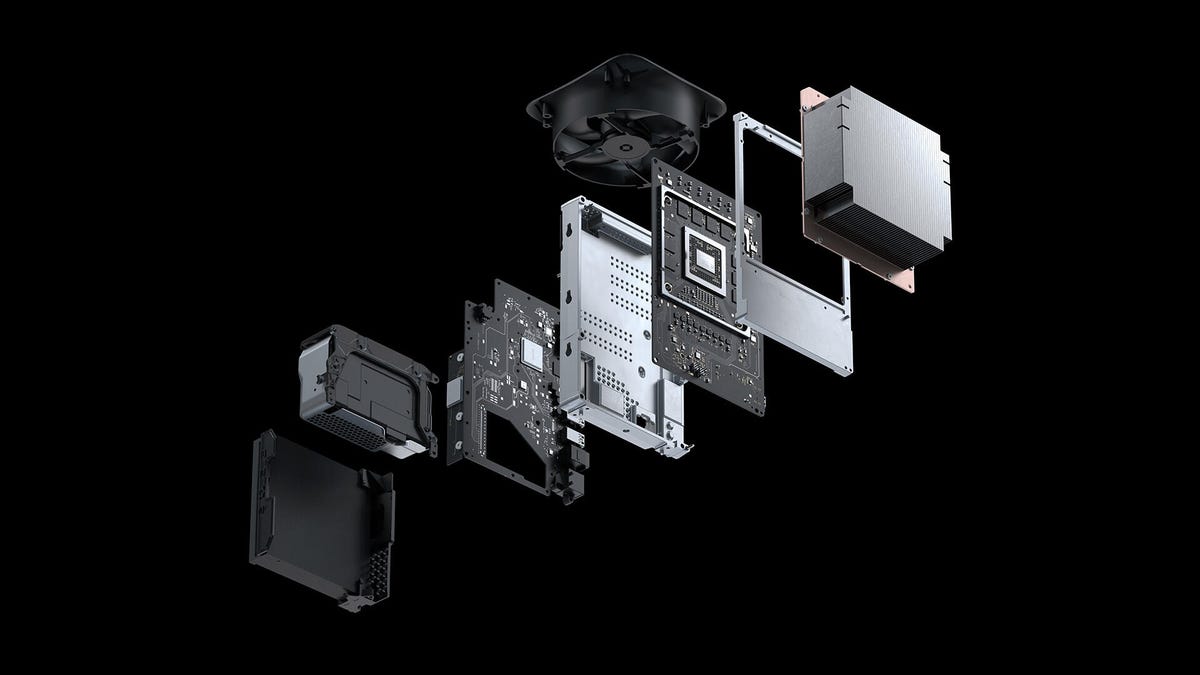They are all overpriced, Intel, AMD and Nvidia. The fact that AMD can sell to MS and Sony such APU for near nothing means PC prices are overpriced across the board for all brands.
Lets see, the PS4 APU is a 8 Core Jaguar with a HD7850... due to TDP limits, an 2C/4T I3 with a 750TI had similar perf... The PS4 Pro version is a higher clocked version of the same jaguar cpu cores paired with something very similar to a Polaris 10.
The Xbox X APU is a 3700X with turbo disabled with a RTX2080 Super, more or less. Im fine with consoles getting decent hardware for once, but lets face it, PC hardware is overpriced and we have to expend a lot more to get similar perf, well see once new gen launches but im not expecting this to change much, price has been only going up over the past few years (for GPUs).
Saying they're overpriced shows that you either don't understand how manufacturing, distribution and retail sales work, or that you are woefully underinformed about console ecosystem economics.
On the one hand, you have a rather traditional open market value chain, where you have a product made by one of several small-to-medium manufacturers (AIB partners for GPUs) or a couple or large ones for CPUs, which has its own suppliers of components (for GPUs AMD is mainly a parts supplier, even if they sometimes supply the GPU, VRAM and reference PCB design). For this finished product you then have a manufacturer that needs to make a profit, as all it does is sell that product. To sell the product, it needs to be distributed to points of sale in all relevant markets, which means the manufacturer sells to distributors (who sometimes sell it on to other distributors) who again sell to retailers. All these steps add to the price, as they all have costs to cover (wages, shipping costs, rent, etc.). So the manufacturer needs to make a profit, the distributor needs to make a profit, and the retailer needs to make a profit. In this system there is no post-sales or side-channel profit, which means that if you lose money on selling a product, you lose money outright. Even if margins at each level are 10%, you then end up with a product with a $300 production cost selling at $440 at retail if you have a manufacturer, a global distributor, a local distributor and a retailer. 10% would for most businesses be an effective break-even in terms of covering basic costs of operation, which means that for any business seeking actual profitability (which most do in a capitalist economy) margins are going to be more than 10%.
On the other hand, you have the closed market of game consoles. Firstly, this is an appliance, it does not require assembly or multiple parts to work, so the "ecosystem" of multiple manufacturers working in sync shrinks dramatically (accessory manufacturers are largely separate from this as their products aren't necessary, unlike the different components of a PC). In other words you have two huge manufacturers who design their own products and keep a lot of work in-house while manufacturing at extreme scale, all of which which drives down costs. Designing a single, integrated appliance will also always be more effective in price/performance than making something modular and scalable (as long as you can make and sell enough of them, as the cost of entry is enormous). Scale also helps a lot in keeping prices from suppliers low. You also have what is essentially a non-competitive duopoly where the manufacturers dictate retail prices, with very little leeway for adjustments (this is why all console sales and rebates are typically game bundles and typically supported directly by the manufacturer). Then theres' the entirely different value chain in play: while the distribution and retail system works much the same on the surface, through the promise of massive scale and secondary and tertiary sales (games, peripherals, accessories, a promise which the manufacturer can make due to their scale and control of the ecosystem) distributors accept lower margins for the main products - often very low. Back when I worked in retail, our margins on a PS4 or XBone were normally around 2-5%, which meant that unless we sold
at least an extra controller or some other add-on, we were losing money for every console we sold. This is entirely normal in the console space, while in the PC parts space (which is still extremely price competitive) margins are typically higher across the board (even if high-priced components are typically loss leaders even there - you can bet the retailer isn't making significant money off your expensive GPU or CPU, but margins are still
higher). Add to this that the manufacturer is guaranteed a certain amount of after-sales (games, accessories, etc.) which they get licence fees from unless they are making them themselves (due to the closed system; console games typically carry a $10 licence fee to the platform owner in the price, hence why they are more expensive than PC games) so they are normally willing to sell the hardware (which is just a one-time sale, after all) at cost or at a loss.
So, to sum up: consoles are cheaper due to scale and integration and the willingness of all parts of the distribution chain to accept minimal margins due to the promise of later sales of higher-margin products. PCs have none of these advantages and are thus much more expensive, but also give you more freedom in all aspects of purchase and use.
It's obvious that AMD can sell MS or Sony 10-20-30 million APUs over 2-4 years (likely with an option to buy more later) at much lower margins than if they sell a few hundred at a time to a distributor. It's especially obvious that these become dramatically cheaper when they also are built-to-purpose parts where the customer is covering a lot of R&D costs - which make up a significant part of any PC CPU or GPU. Integrating the CPU and GPU into one piece of silicon also saves on the cost of going from design to actual silicon, which is very, very expensive. And it's triply obvious that these will then be cheaper than a PC at retail when all parts of the retail distribution chain agree to sell the unit at as low margins as can be done.

 www.cnet.com
www.cnet.com





